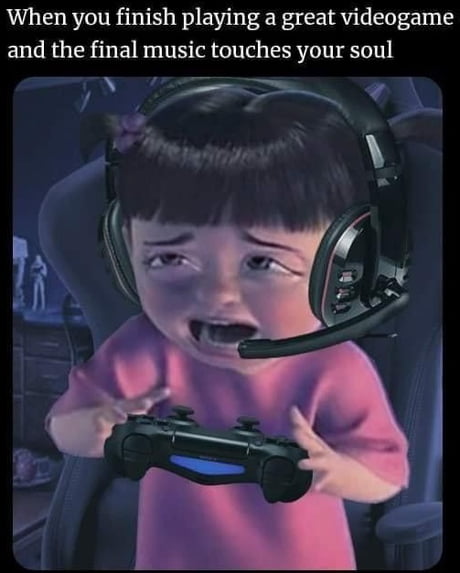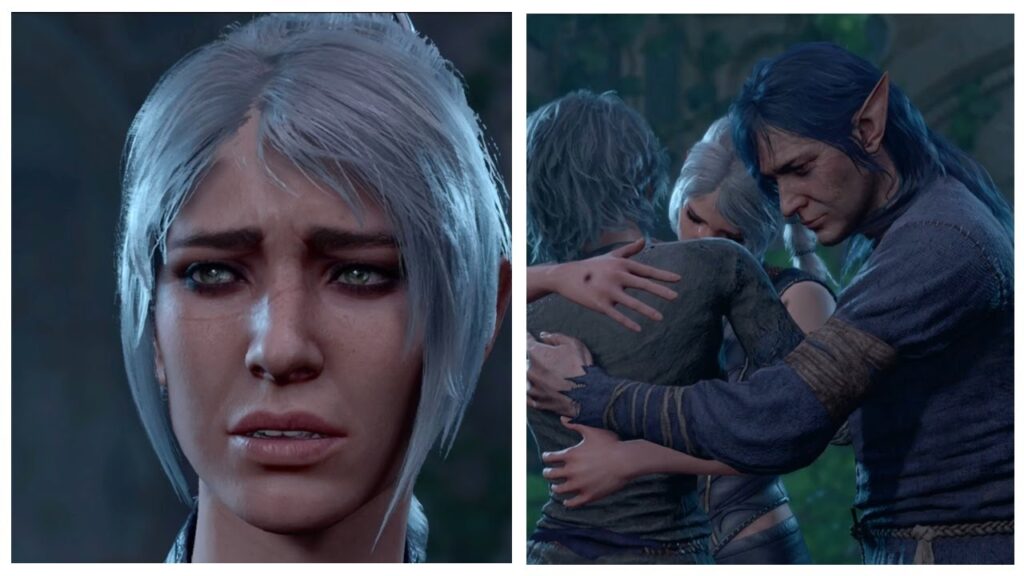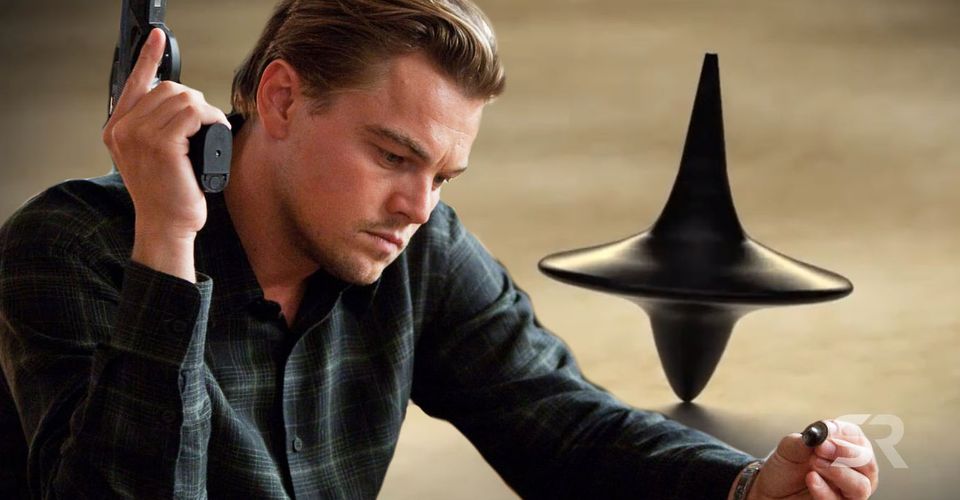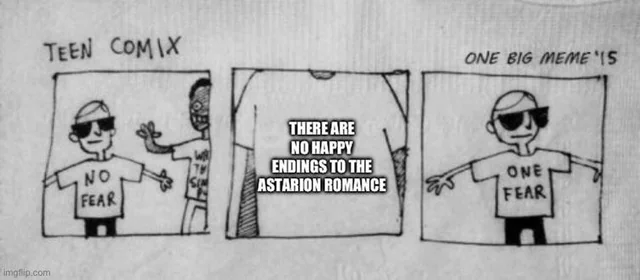Everyone can agree that there are no good or painless endings in Baldur’s Gate 3 for any character.
And it’s the greatest thing EVER.
I’m not a sadist who likes to see characters suffer.
I just love fantastic narrative stories and Larian Studios perfectly captured (and brutally stomped on) players hearts by ending a complex RPG adventure with the message:
There are no happy endings.
Because in real-life, ‘you can’t have your cake and eat it too.’

TLDR: Larian Studios said “what if we made fictional characters suffer realistic endings to make players feel real feelings”
Dungeons and Dragons is all about fantasy and make-believe. You can use your imagination and cause chaos with ease with almost zero emotional consequence.
If you kill an ogre in a different game, you likely won’t stumble upon his innocent ogre children he was trying to feed, and thus feel guilty for your actions.
It’s simple game design for a player to have a ‘right’ and a ‘wrong’ action, and even if the player chooses the ‘wrong’ action, they’ll likely never have to emotionally face and feel guilt from their actions.
This lack of self-reflection, tough choices, and abundant happy endings can make games seem fictional, low-stakes, and provide little empathy for players to develop.
What makes Baldur’s Gate 3 Endings better than other RPGs?
Every choice made in the game has an emotional consequence the player MUST face, eerily similar to choices made in real-life, causing players to grapple with their own feelings as more and more consequences unfold as the story progresses.
NO ONE wants to condemn Astarion to live a life in shadows, but no one wants Astarion to become evil either.

Tough choices are KEY to mirroring real-life and if game developers want players to emotionally connect to the characters and story, why write unrealistic and happy endings players can’t relate to?
Mixing realism and fantasy is not something new to Dungeons and Dragons or fantasy games.
Media like Critical Role introduced ‘no happy ending without a cost’ before in their first Dungeons and Dragons campaign. The show’s huge popularity showcased the power of live-action role playing immersed with real and permanent in-game consequences.
**SPOLIER ALERT FOR CAMPAIGN 1**
A fictional main character, Vax, is forced to die in order to save the day. Scanlan, another fictional character, was given a HARD choice. He could either save his friend turned family, Vax, OR defeat the big bad evil. Scanlan couldn’t save his friend AND win the battle, leading to a tragic and somber ending despite defeating the evil.

Another hugely popular game that ended with a soul-crushing finale was the Mass Effect Trilogy. Despite the super tragic ending, it’s still one of the greatest videogame conclusions.
This type of complex ending laced with conflicting emotions is what creates an amazing and engaging story.
The ending to the campaign simply wouldn’t have been as good or emotionally fulfilling if everything was perfect and there were no issues. It’s simply unrealistic and unsatisfying for a group of adventurers to save the world WITHOUT some form of tragedy or loss.
Think back to a story that ended with utter happiness. Now compare it to a story that ended with mixed feelings of sadness and joy.
Which left a bigger impact? Which was more gratifying?
Sure, you might cry and say you hate a sad ending, because no one enjoys watching a character suffer and not be given the happiness they deserve.
Yet, deep down, you know that a sad and somber ending, will always be the better ending, because it’s realistic.
And sometimes, it feels good to experience a little emotional pain caused by fiction because the emotions from fiction aren’t from a tragedy in real-life.
TRUST ME, the pain I felt finishing Shadowheart’s quest was REAL. I cried REAL tears. However, I knew that nothing in my life was actually wrong, I was crying over something fictional, so I was able to enjoy the sadness without truly worrying about it.

Besides, isn’t it a little comforting to know your fictional vampire boyfriend experiences the same grief and sadness you feel?
SURE. Watching a fictional character achieve a happy ending can be therapeutic, but it also creates a disconnect from the player towards the fictional character because achieving a simple ‘happily ever after’ in real-life is extremely difficult.
TLDR:
Sad ending = good b/c players can emotionally relate to fictional characters. More player connection with characters = impactful and immersive game narrative.
Happy ending = unrealistic and emotional disconnect from players to characters.
Baldur’s Gate 3 DOESN’T NEED LONGER FINAL CUTSCENES
FURTHER, for all you Ending-Nay-Sayers,
Larian Studios is absolutely capable of writing a definitive and long ending for each character.
However, they CHOSE to end the final cutscenes quickly and fade to black, on purpose.
Why?
Because it creates unsatisfying endings, which, are the best.
You want a happy ending? Go read fanficition.
Sure, the endings are painful, and sad, and soul-crushing, but don’t assume Act 3 was rushed or unfinished because of it’s short final scenes.
Oftentimes, an open ending to a story is a way for the creators to let audiences decide for themselves how the story ends.
Or, in most cases, creators leave an obscure ending because the main story is already finished.
Ever seen the film Inception?
**NO SPOILERS. PINKY PROMISE**
Christopher Nolan kept the ending inconclusive on purpose.
Why?
Because Nolan stated the film ended when the main character completed his emotional journey. It doesn’t matter WHAT happened to the main character, because the character finished his emotional growth, which was the heart of the story.

So, similar to Nolan’s film Inception, Larian Studios made a likely decision to write cliffhanger endings because each character’s emotional journey was finished.
SURE, Larian Studios could throwout a DLC with concluded endings to make an extra buck.
I’d cough-up $60 instantly if they released more game play.
And sure, maybe Larian Studios left the endings vague and brief to make a sequel game.
Whatever the true reason is behind having short endings doesn’t matter because each ending effectively concluded every character’s emotional journey, hence, the end of the story and game.
Here’s a QUICK breakdown on how each character got a RESOLVED ending:
- Shadowheart rejects Shar, faces the truth instead of erasing her painful memories, and finally accepts the feeling of grief.
- Laezel was the perfect soldier who was CRAZY loyal until she decided to do what was righteous, turning away from her dream of being a Kith’rak and blindly obedient to free her people.
- Karlach accepts her actions that accidentally made her into a Devil’s living weapon, and instead of running away or accepting death, she goes to Avernus to kick ass.
- Wyll learns that ANY gained power, even for the right reason, has consequences and instead of wandering around Faerun aimlessly killing monsters to be ‘depicted as a hero,’ he uses his power to help fight in Avernus with Karlach.
- Astarion learns that he must sacrifice his own desires for power and that ascending would only turn him into the monster he hated most, Cazador. He realizes that even though he sacrifices walking in daylight, he will always have friends who love and support him, something he was never thought he’d have without power.
- Gale finally understands his own self-worth beyond trying to please Mystra. He realizes that power isn’t what he needs to be worthy, and gives Mystra the Crown, ultimately being accepted by her again, only this time not being ULTRA-dependent on her.
ALL OF THESE are perfect conclusions to each character regarding the storyline.

EVEN IF you chose the other endings, they all similarly resolve the original issues faced by each character in the beginning.
The function of the game is to allow players to choose the kind of adventure they want to play while also impacting the in-game character’s journey, and in the end, the players earlier actions determine how the game concludes.
Whether you chose to be an Evil Durge, the Kindest Bard, or the Strongest Paladin, you get the chance to impact the fate of every in-game character.
And if you expect Larian Studios to go IN DEPTH for each of the 17,000 endings (supposedly), you’re smoking crack.
If you are truly looking for a happy or fully-concluded ending, then, not a joke this time, go read fanfiction!
Here’s the Link: https://archiveofourown.org/tags/Baldur’s%20Gate%20(Video%20Games)/works
Don’t throw shade on a game for creating endings that effectively make you feel a complex emotion.
Besides, what’s a good story if it doesn’t make you cry or smile or laugh?
I would consider a HAPPY ending where everything was perfect to be the LAZY ending.
Instead, Larian Studios created 17,000 endings with deep emotional stakes and complex characterization.
WHAT’s THIS MEAN??
Considering the MASS amount of content, the re-playability, multi-dimensional characters, and COUNTLESS choices to choose, Larian Studios did a FANTASTIC job creating a well-crafted story and outstanding endings that defy expectations.
And if you don’t like the sad endings, cry me a river, build a bridge, and get over it istik.


Leave a Comment